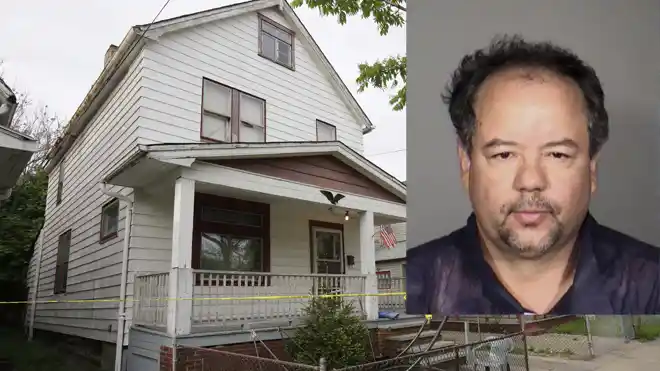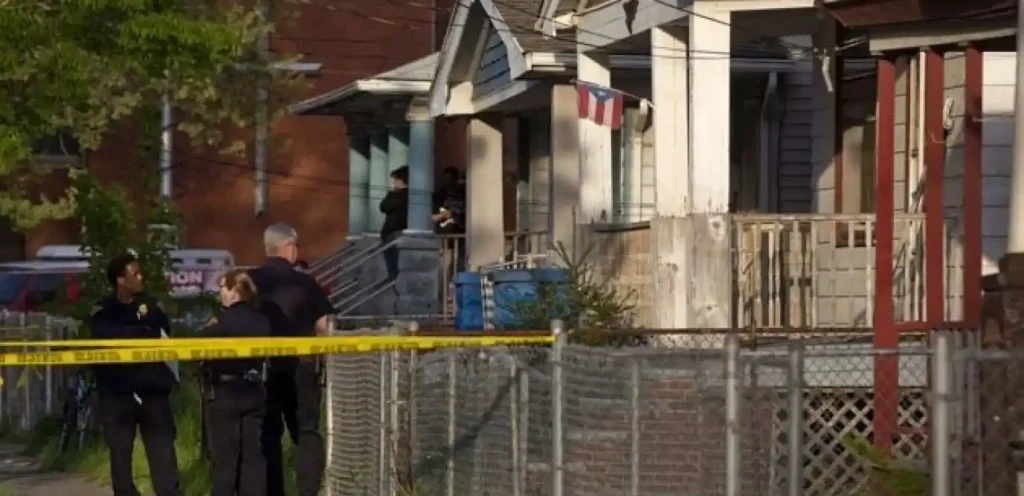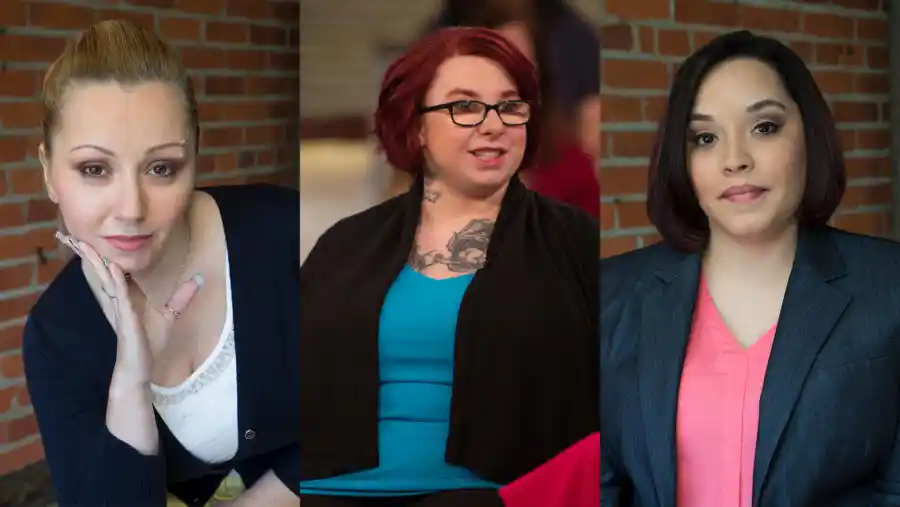In Cleveland, Ohio, a nightmare unfolded behind closed doors at what became known as the Cleveland House of Horrors. For nearly a decade, Ariel Castro held three women captive in his home, subjecting them to unimaginable abuse. This article delves into the harrowing story of the Ariel Castro kidnappings, exploring the lives of the victims, their dramatic escape, and the profound impact of this chilling case.
Table of Contents
The Abductions
Ariel Castro’s Profile
Ariel Castro, born on July 10, 1960, was a former school bus driver in Cleveland, Ohio. Castro lived a seemingly ordinary life, but behind this façade was a man capable of unimaginable cruelty. He preyed on young women, exploiting their vulnerabilities to lure them into his home, where he would keep them captive for years.

Michelle Knight
Michelle Knight, the first victim, was abducted on August 23, 2002. At the time, Knight was 21 years old and struggling with personal issues, including losing custody of her young son. Castro offered her a ride, claiming he could help her find her way. Instead, he took her to his house, where she would remain captive for over a decade.
Amanda Berry
Amanda Berry was abducted on April 21, 2003, a day before her 17th birthday. Berry was walking home from her job at Burger King when Castro offered her a ride. She accepted, believing he was a family friend. This trust was brutally betrayed as Berry found herself imprisoned in Castro’s house.
Gina DeJesus
Gina DeJesus, a friend of Castro’s daughter, was abducted on April 2, 2004, at the age of 14. DeJesus was walking home from school when Castro approached her. As someone she knew and trusted, she willingly got into his car, unaware of the nightmare that awaited her.

Life in Captivity
Conditions and Treatment
The conditions under which Knight, Berry, and DeJesus were held were horrific. Castro kept them locked in separate rooms, often restrained with chains. They were subjected to physical, emotional, and sexual abuse. Their captor exerted complete control over every aspect of their lives, ensuring they had no means of escape.
Survival and Resilience
Despite the dire conditions, the women demonstrated remarkable resilience. They formed a bond that helped them endure the daily abuse and isolation. Amanda Berry gave birth to a daughter, fathered by Castro, during her captivity. This child became a source of hope and motivation for all three women.
The Escape

Amanda Berry’s Courage
On May 6, 2013, Amanda Berry managed to escape, ultimately leading to the rescue of the other two women. Berry saw an opportunity when Castro left the house and forgot to lock the main door. She attracted the attention of a neighbor, Charles Ramsey, by screaming for help and kicking at the door. Ramsey and another neighbor, Angel Cordero, helped Berry break free and called the police.
Rescue Operation
The Cleveland Police responded swiftly, arriving at Castro’s house and rescuing Michelle Knight and Gina DeJesus. The discovery of these women, alive and relatively unharmed despite their long ordeal, was a moment of profound relief and astonishment for their families and the community.
Dive into the chilling details of the Krystal Red case, one of the most baffling investigations for Scotland Yard.
Legal Proceedings
Ariel Castro’s Arrest and Charges
Ariel Castro was arrested on the same day as the rescue. He was charged with multiple counts of kidnapping, rape, and aggravated murder (related to his causing miscarriages in one of his captives). Castro initially pleaded not guilty, but the overwhelming evidence against him led to a plea deal.
The Plea Deal and Sentencing
On July 26, 2013, Castro accepted a plea deal to avoid the death penalty. He pleaded guilty to 937 charges, including kidnapping, rape, and aggravated murder. On August 1, 2013, he was sentenced to life in prison without the possibility of parole, plus 1,000 years.

Ariel Castro’s Death
Ariel Castro was found dead in his prison cell on September 3, 2013, just over a month after his sentencing. He had committed suicide by hanging himself. His death brought an abrupt end to the legal proceedings but did not erase the pain and trauma he inflicted on his victims.
The Aftermath
Reintegration and Healing
The road to recovery for Michelle Knight, Amanda Berry, and Gina DeJesus has been long and arduous. Each of the women has faced significant challenges in reintegrating into society and coping with the psychological scars left by their ordeal. They have received support from their families, mental health professionals, and the public.
Advocacy and Awareness
In the years since their escape, the survivors have become advocates for missing persons and victims of abuse. They have shared their stories through books, interviews, and public appearances to raise awareness and support others who have endured similar experiences.
Michelle Knight
Michelle Knight changed her name to Lily Rose Lee to distance herself from her past. She has written books about her experience and recovery, including “Finding Me: A Decade of Darkness, a Life Reclaimed.”
Amanda Berry
Amanda Berry co-authored “Hope: A Memoir of Survival in Cleveland” with Gina DeJesus. She has also become a public figure, hosting a local news segment focused on missing persons cases.
Gina DeJesus
Gina DeJesus has also been active in advocacy work. Along with Amanda Berry, she founded the Cleveland Family Center for Missing Children and Adults, which supports families of missing persons.

Similar ” Kidnapping “
- Cherish Perrywinkle: Kidnapped from Walmart and Murdered
- Jonelle Matthews: The Cold Case That Shocked America
- The Kidnapping of Colleen Stan: The Girl in the Box
- Chloe Jones: Missing Akron Woman Found Hidden in Garage Loft
Conclusion
The Ariel Castro kidnappings are a stark reminder of the horrors that can exist behind closed doors and the incredible strength of those who survive such ordeals. The stories of Michelle Knight, Amanda Berry, and Gina DeJesus are tales of suffering but also resilience, hope, and the unyielding human spirit. Their experiences have shed light on the importance of vigilance, support, and advocacy for victims of abuse and abduction.
FAQs
What were the charges against Ariel Castro?
Ariel Castro was charged with 937 counts, including kidnapping, rape, and aggravated murder. He pleaded guilty to these charges and was sentenced to life in prison without parole plus 1,000 years.
What has happened to the survivors since their escape?
The survivors have faced significant challenges in reintegrating into society and coping with their trauma. They have received support from their families, mental health professionals, and the public. They have also become advocates for missing persons and victims of abuse.
Did Ariel Castro’s family know about the kidnappings?
There is no evidence that Ariel Castro’s family was aware of the kidnappings. Castro went to great lengths to conceal his crimes from everyone, including his family and neighbors.
What impact has the Ariel Castro case had on public awareness?
The Ariel Castro case has raised significant awareness about missing persons and the importance of vigilance in communities. It has also highlighted the resilience of survivors and the need for continued support and advocacy for victims of abuse.
What were the conditions like inside the Cleveland House of Horrors?
The conditions inside the Cleveland House of Horrors were deplorable. The victims were kept in locked rooms, chained, and subjected to constant abuse. They had limited access to food, hygiene, and medical care, living in fear and isolation for years.